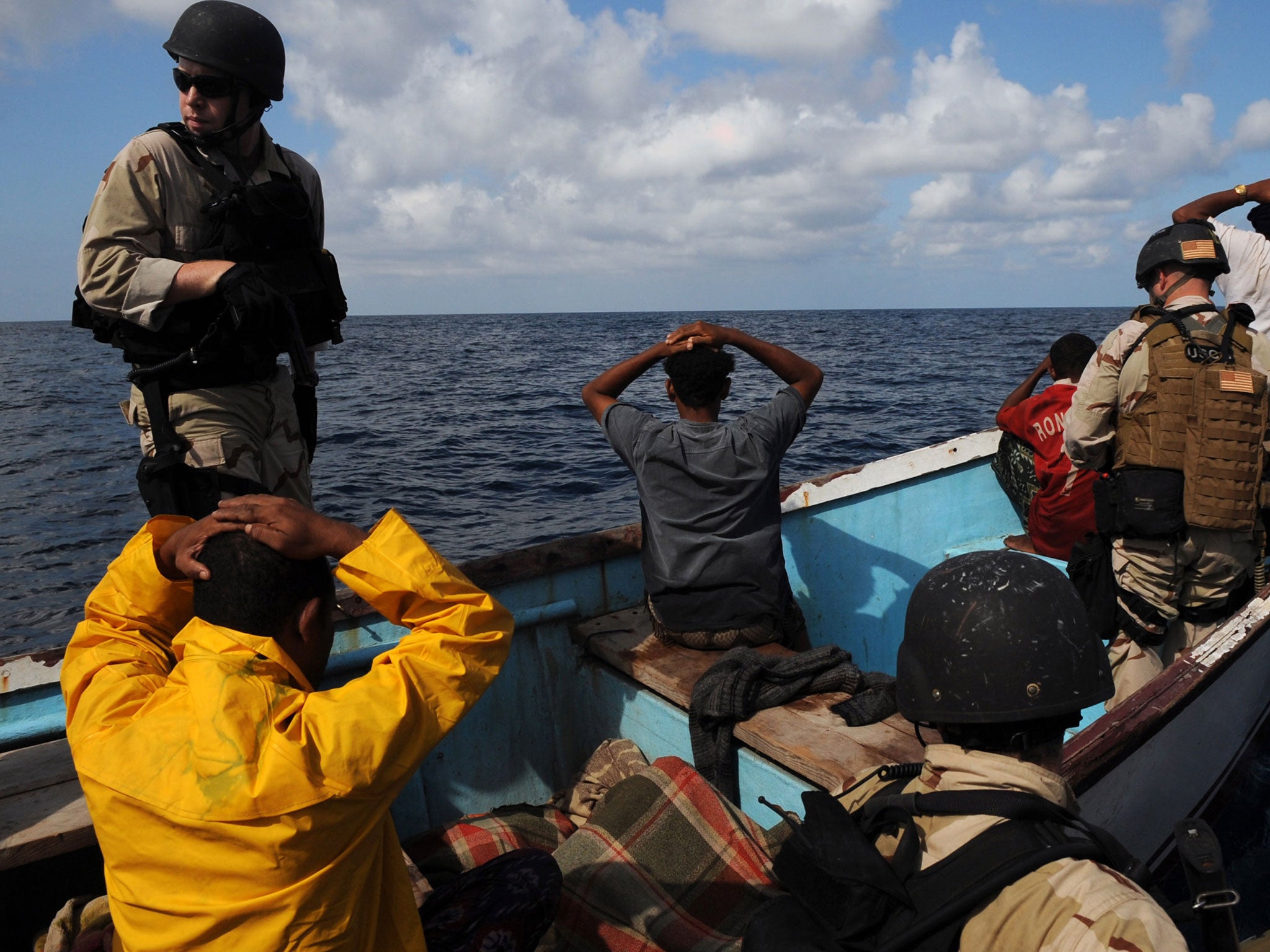Huge decline in hijackings by Somali pirates
Next Sunday will mark the one-year anniversary of the last successful hijacking off the troubled African country's coast

Your support helps us to tell the story
From reproductive rights to climate change to Big Tech, The Independent is on the ground when the story is developing. Whether it's investigating the financials of Elon Musk's pro-Trump PAC or producing our latest documentary, 'The A Word', which shines a light on the American women fighting for reproductive rights, we know how important it is to parse out the facts from the messaging.
At such a critical moment in US history, we need reporters on the ground. Your donation allows us to keep sending journalists to speak to both sides of the story.
The Independent is trusted by Americans across the entire political spectrum. And unlike many other quality news outlets, we choose not to lock Americans out of our reporting and analysis with paywalls. We believe quality journalism should be available to everyone, paid for by those who can afford it.
Your support makes all the difference.Next Sunday will mark the one-year anniversary of the last successful hijacking by Somali pirates, the chair of the global group trying to combat the pirates has said.
After 46 hijackings in 2009 and 47 in 2010, there were only 14 in 2012, with the last on 12 May.
American diplomat Donna Leigh Hopkins credited the combined efforts of international naval forces and increased security on ships, including the use of armed guards. But she also pointed to the jailing of 1,140 Somali pirates in 21 countries, which she says "started de-glamourising piracy".
She said: "Pirate attacks are down by at least 75 per cent.
"There are still pirate attacks being attempted but there has not been a successful hijacking since May 2012."
On Wednesday, the UN discussed combating pirates at a meeting of the Contact Group on Piracy, off the Coast of Somalia, which includes more than 85 countries as well as international organisations and private sector representatives.
Hopkins, who chairs the group, and the Danish ambassador Thomas Winkler, who leads its legal committee, stressed there was no room for complacency, citing havens for pirates on Somalia's northern coast and million-dollar ransoms that continue to attract young men to piracy.
Winkler said prosecuting more than 1,000 pirates and transferring them to notorious Somali prisons appeared to be having a preventive effect.
He said: "The number of active pirates is perhaps 3,000. So if you put a thousand behind bars, and 300-400 die every year at sea from hunger (or) drowning … you will quickly come down."
The last successful hijacking was of the MV Smyrni, a Greek-registered tanker carrying crude oil worth tens of millions of dollars. It was released after 11 months of negotiations and payment of "a record-breaking ransom nearing $15 million (£9.6 million)", Hopkins said.
She said: "In my opinion, it is a poster child for what happens when ship owners don't employ the best management practices … to prevent your ship from being hijacked.
"They did none of them, and they got exactly what one might expect. They got hijacked and they paid a very heavy price for it."
Hopkins said that while "not a single ship that has employed armed security has ever been hijacked", there were also many other security measures that have proved effective, including training crew and posting lookouts.
When asked how optimistic she was that there would not be a hijacking before 12 May, she said: "I'm not going to count days. Every day without a successful attack is a good day."
Join our commenting forum
Join thought-provoking conversations, follow other Independent readers and see their replies
Comments